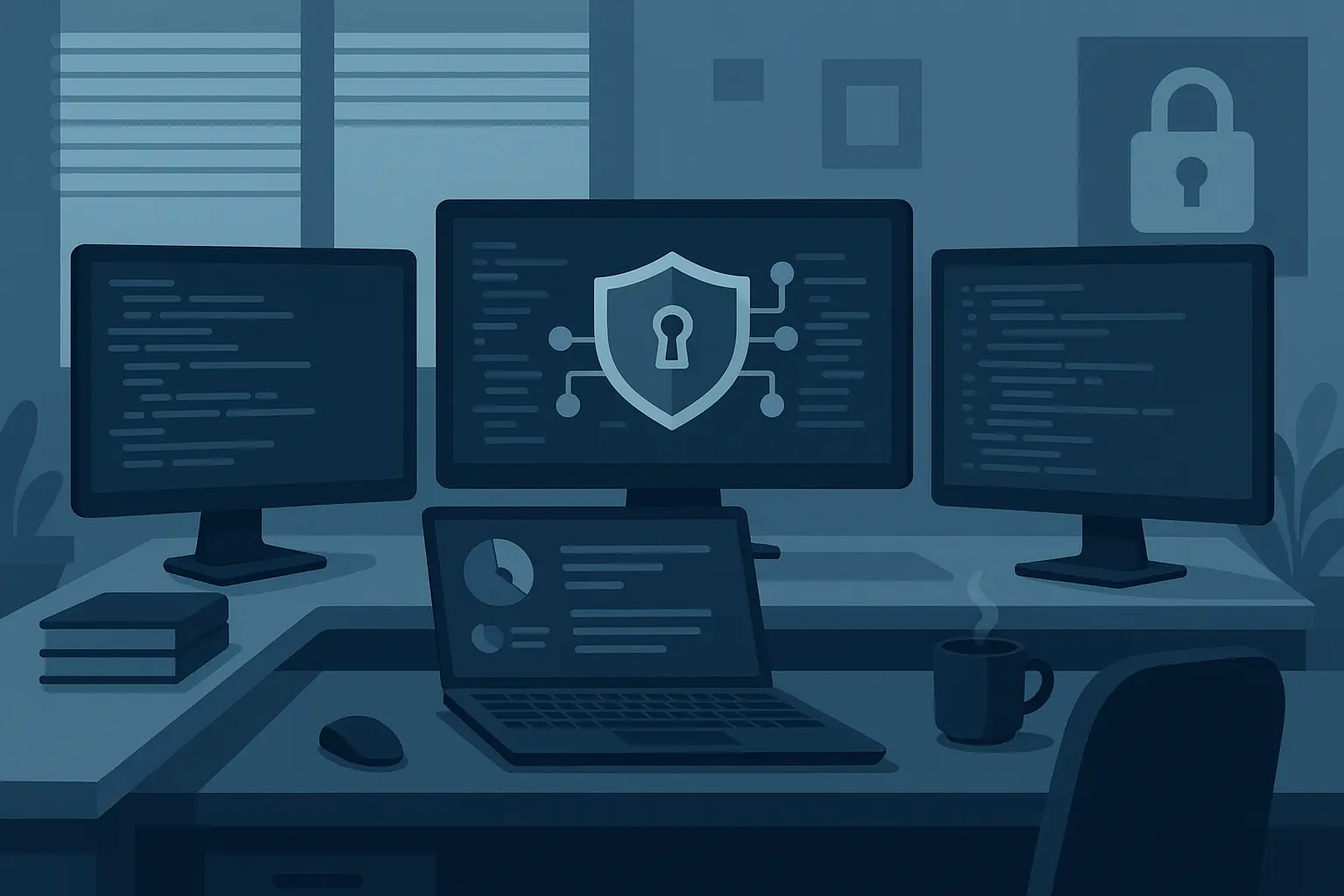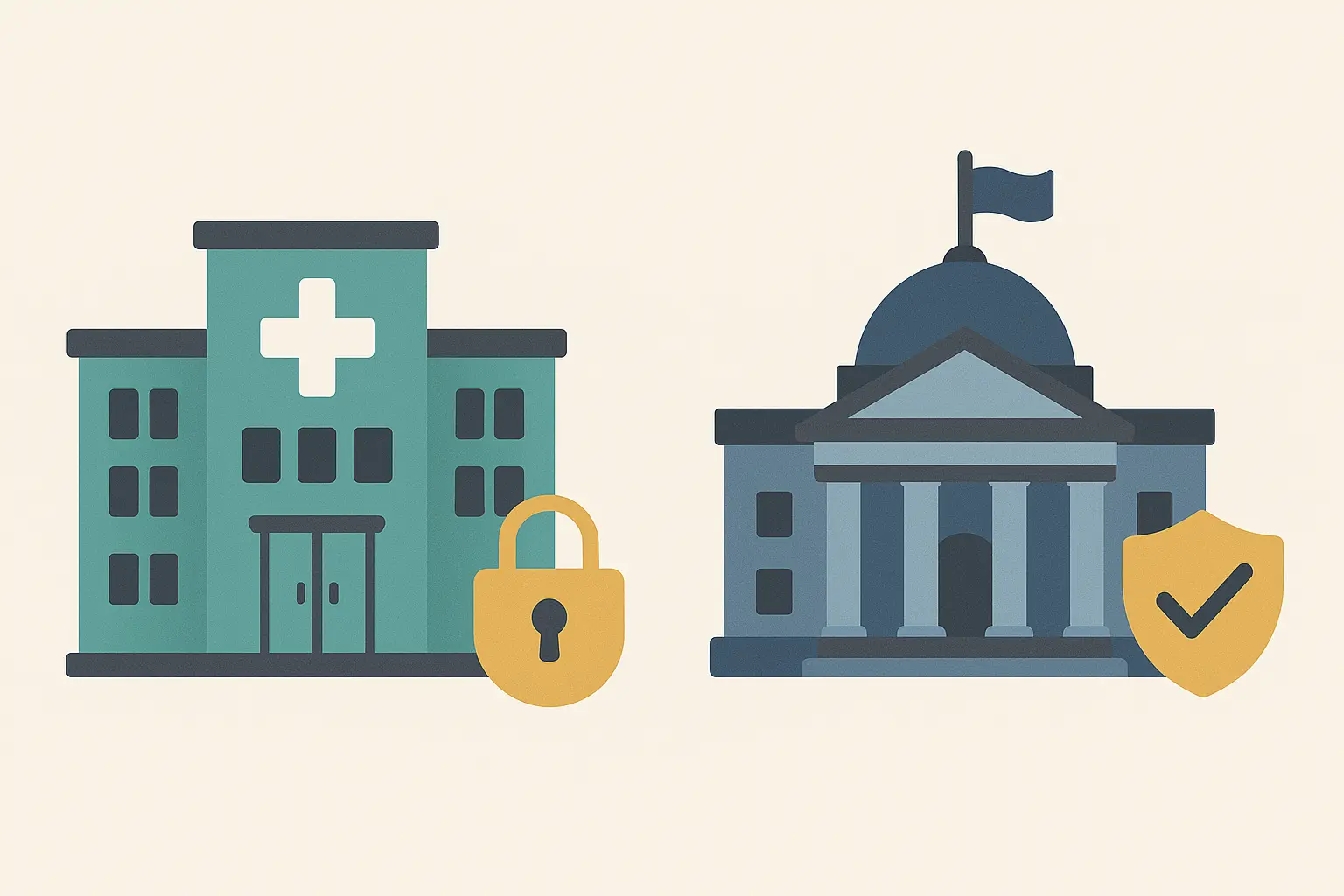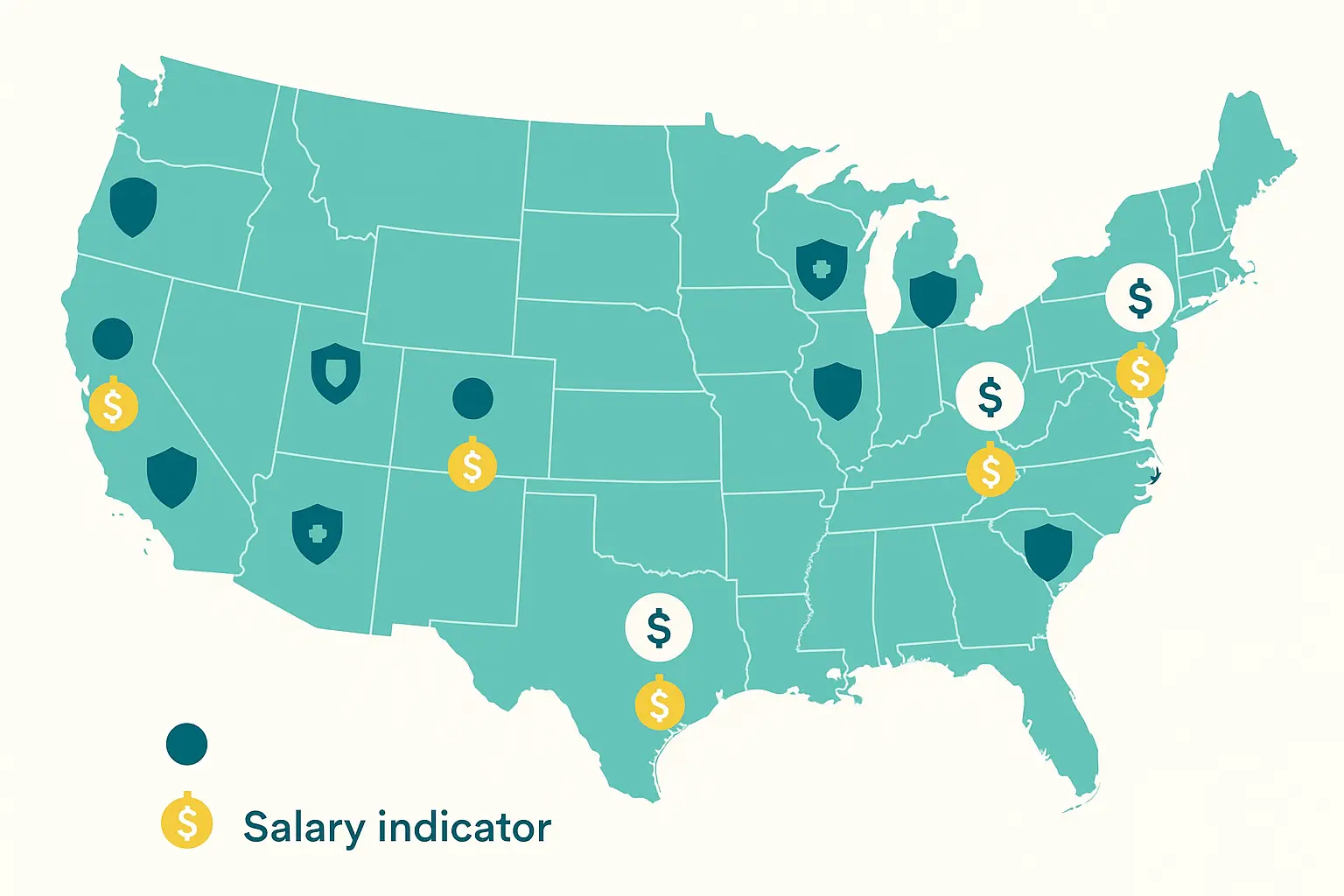When I first considered breaking into ethical hacking, I spent weeks digging through conflicting salary data and vague “it depends” answers. After years in the field and countless conversations with professionals at every level, I finally have the straight answers I wish I’d found back then.
The short version? According to Glassdoor data, ethical hackers average $147,108 in the US. But that number means nothing without context. Here’s what actually matters for your ethical hacker salary expectations.
Table of Contents
-
The Real Numbers (No BS)
-
Why Companies Actually Pay Us Well
-
What Actually Boosts Your Paycheck
-
Location Still Matters (But Less Than Before)
-
Three Career Paths, Three Different Outcomes
-
Smart Career Moves That Actually Pay Off
-
The Web3 and Bug Bounty Goldmine
-
How ValidGrad Supports Your Professional Growth
TL;DR
-
Entry-level positions start around $65,000-$85,000, while senior professionals earn $200,000+ annually
-
Location dramatically impacts pay – Silicon Valley offers $180,000-$300,000+ but housing costs will destroy you
-
OSCP certification can add $10,000-$20,000 to your annual salary immediately
-
Financial services and healthcare sectors pay 20-40% above average due to regulatory requirements
-
Remote work typically pays 10-20% less than on-site but eliminates geographic limitations
-
Independent consulting can reach $150-$500 per hour for experienced professionals
-
Continuous learning and specialization in emerging areas like cloud security command premium salaries
The Real Numbers (No BS)
Let me cut through the noise with actual salary ranges I’ve seen in the field:
-
Starting out (0-2 years): $65,000-$85,000
-
Getting good (3-7 years): $85,000-$140,000
-
Senior level (8+ years): $140,000-$250,000+
-
Expert/consulting: $200,000-$500,000+
But here’s the thing – these ranges are massive because location, industry, and specialization completely change the game. According to CybersecurityJobs.com, the national starting yearly salary for ethical hackers is $65,000 or $31.25 an hour, though some positions start as low as $35,500 per year depending on location and company size.
Understanding how much does an ethical hacker make requires looking beyond these averages to see what actually drives compensation differences.
Starting Out: Your First Two Years
Junior penetration testers and security analysts typically earn $55,000-$75,000 while learning fundamental tools like Metasploit, Burp Suite, and Nmap. You’ll work under supervision, focusing on basic vulnerability assessments and gaining hands-on experience with different testing methodologies.
This phase is about building your technical foundation and understanding how security fits into broader business operations. Don’t get discouraged by entry-level pay – the growth trajectory is steep for professionals who invest in continuous learning.
Finding Your Groove: Mid-Level Growth
Experienced professionals earning $80,000-$140,000 lead independent assessments and mentor junior team members. You’ll develop specialized expertise in specific technologies or industries while taking on more complex projects. This stage often involves client-facing responsibilities and the opportunity to influence security strategy decisions.
Many professionals at this stage consider pursuing advanced credentials, making cost of a college degree a relevant consideration when evaluating whether advanced cybersecurity education investments align with growing salary expectations.
Reaching Expert Status: Senior Level Compensation
Senior consultants and security architects command $140,000-$250,000+ by managing large-scale security programs and developing organizational security strategies. Many professionals transition into leadership roles or specialized consulting arrangements. Your expertise becomes less about hands-on testing and more about strategic guidance and program management.
Why Companies Actually Pay Us Well
Most people think we just “hack for good,” but the reality is more strategic. We prevent disasters.
Last month, I found a vulnerability that could have exposed 2 million customer records. The fix cost $30,000. A breach would have cost at least $4.45 million (the 2024 average). That’s why companies pay us – we save them from catastrophic losses.
What Your Day-to-Day Actually Looks Like
Your daily work isn’t just running scans. You’re finding problems and providing actionable solutions that protect millions of dollars in assets and sensitive data. A typical day might start with scanning a client’s web application using Burp Suite to identify SQL injection vulnerabilities. After discovering a critical flaw that could expose customer data, you’d document the attack vector, demonstrate the potential impact, and provide specific remediation steps.
Your report would explain to executives that this vulnerability could lead to a $2.3 million data breach based on industry averages, making the $50,000 fix seem like a bargain. What is an ethical hacker exactly? We’re business risk consultants who happen to use technical tools to identify problems before criminals do.
Why Organizations Consider You Worth the Investment
Companies view ethical hackers as insurance policies against catastrophic losses. Your work prevents data breaches that could cost millions in fines, legal fees, and reputation damage. Beyond immediate protection, you help organizations meet compliance requirements for regulations like HIPAA, PCI-DSS, and GDPR, avoiding penalties that can reach into the hundreds of millions.
The emergence of Web3 and decentralized finance has created new opportunities for ethical hackers, with “platforms like Immunefi” funding over $120 million in bug bounty payouts, where top performers can earn between $1 million and $14 million depending on vulnerability severity.
What Actually Boosts Your Paycheck
After watching hundreds of careers unfold, certain patterns emerge. Some certifications and skills carry equal weight in salary negotiations, while others mainly serve as resume builders. The ethical hacker salary increases most dramatically when you focus on certifications that demonstrate practical skills rather than theoretical knowledge.
Certifications That Actually Matter
OSCP (Offensive Security Certified Professional): The gold standard. Adds $10,000-$20,000 immediately because it requires actual penetration testing skills, not memorization. The 24-hour practical exam weeds out candidates who can’t perform under pressure, making OSCP holders highly valued by employers who need proven technical ability.
Consider two candidates applying for a penetration testing role: Sarah has a Computer Science degree and basic Security+ certification, while Mike has the same degree plus OSCP. Sarah receives an offer for $75,000, while Mike gets $92,000 for the identical position. The OSCP certification directly translated to a $17,000 salary increase.
Industry Foundation Certifications: CEH, CISSP, and Security+ provide credibility and often serve as minimum requirements for government and enterprise positions. According to Payscale data, those with a Certified Ethical Hacker (CEH) credential earn an average base pay of $86,436, demonstrating the tangible financial impact of foundational certifications.
Specialized Skills: Cloud security expertise across AWS, Azure, and Google Cloud Platform can add $15,000-$30,000 to base salaries as organizations migrate critical systems. Mobile application security testing, industrial control systems knowledge, and advanced exploit development represent niche areas where specialized knowledge commands significant premiums.
Industries That Pay Premium
Where you work matters as much as what you know when it comes to compensation. Certain industries consistently pay premium salaries for ethical hacking services due to regulatory requirements, high-value assets, or sophisticated threat landscapes.
|
Industry Sector |
Average Salary Premium |
Key Drivers |
Typical Salary Range |
|---|---|---|---|
|
Financial Services |
20-40% above market |
Regulatory compliance, high-value targets |
$120,000-$280,000 |
|
Healthcare |
15-30% above market |
HIPAA compliance, patient data protection |
$110,000-$250,000 |
|
Government/Defense |
10-25% above market |
Security clearance requirements |
$100,000-$220,000 |
|
Technology |
15-35% above market |
Innovation focus, competitive talent market |
$115,000-$300,000+ |
Financial Services: Banks and financial institutions offer 20-40% salary premiums above market averages due to strict regulatory compliance requirements and high-value targets. These organizations face sophisticated attacks daily and need ethical hackers who understand both technical vulnerabilities and financial industry regulations.
Healthcare and Government: Healthcare organizations dealing with HIPAA compliance and government agencies requiring security clearances provide stable, well-compensated positions with excellent benefits. Security clearance can add $10,000-$15,000 annually to your salary while opening doors to specialized government contractor positions.
Location Still Matters (But Less Than Before)
Geographic arbitrage has become a powerful tool for maximizing your earning potential. The rise of remote work means you can potentially access Silicon Valley compensation while living in areas with significantly lower costs.
Premium Markets: Where Top Dollar Lives
Silicon Valley: $180,000-$300,000+, but your rent will make you cry. Housing costs can consume 40-50% of your income, and the competitive pressure is intense. Many professionals use Bay Area experience as a stepping stone to remote positions that maintain high salaries while reducing living expenses.
New York Financial District: $150,000-$250,000 plus bonuses that can double your base compensation. The fast-paced environment and direct access to decision-makers can accelerate career advancement, but work-life balance often suffers.
Washington DC: $120,000-$200,000, plus security clearance premiums up to $15,000 annually. Government contractor positions offer stable long-term employment and opportunities to work on national security challenges.
The Remote Revolution
Remote typically pays 10-20% less than on-site, but eliminates geographic constraints and commuting costs. You can access Silicon Valley money while living in Ohio. The key is proving you deliver results without hand-holding.
However, remote work requires strong self-discipline and communication skills to maintain client relationships and project momentum. Many premium positions still require on-site presence, especially in regulated industries.
International Opportunities
European Markets: Germany, UK, and Netherlands offer €50,000-€120,000 annually with excellent benefits and job security. Switzerland and Luxembourg command premium salaries (€80,000-€150,000+) but come with higher living costs.
Emerging Markets: Countries like India offer ₹400,000-₹2,500,000 ($4,800-$30,000 USD) with rapid salary growth as domestic demand increases. The ethical hacker salary in India represents excellent value when adjusted for local living costs, and many professionals use these positions as stepping stones to international opportunities.
Three Career Paths, Three Different Outcomes
Understanding employment models helps you select the path that aligns with your financial goals and lifestyle preferences.
Traditional Employment: Stability and Benefits
Full-time positions provide stable salaries, comprehensive benefits, and clear career progression paths. You’ll receive professional development opportunities, mentorship, and the security of regular paychecks. This model works well for professionals who prefer predictable income and want to focus on technical work rather than business development.
Perfect if you want to focus on the technical work without business headaches. You get stable pay, benefits, and can concentrate on what you do best.
Independent Consulting: High Risk, High Reward
$150-$500/hour is possible, but you’re running a business. You need sales skills, client management, and thick skin for irregular income. Experienced consultants can earn $300,000-$1,000,000+ annually but must manage business development, client relationships, and irregular income streams.
You’ll need to handle your own benefits, taxes, and professional development while building a reputation that attracts premium clients. This path requires entrepreneurial skills beyond technical expertise.
Bug Bounties and Freelance: Performance-Based Income
Can be lucrative ($1,000-$50,000 per find), but it’s feast or famine. Top performers make $100,000-$500,000 annually, but income variability requires careful financial planning and the ability to handle unpredictable challenges. Best as supplemental income unless you’re exceptionally skilled.
Smart Career Moves That Actually Pay Off
I’ve watched talented hackers plateau at $80,000 while others with similar skills hit $200,000+. The difference? Strategic thinking. Your earning potential depends more on strategic career decisions than pure technical ability once you reach intermediate skill levels.
The Skills That Actually Matter
Technical Foundation:
-
Master the core tools: Metasploit, Burp Suite, Nmap
-
Learn Python and PowerShell (you’ll use them daily)
-
Get cloud platform certified – AWS/Azure expertise is non-negotiable now
-
Stay current with emerging threats (dedicate 5-10 hours weekly)
Business Skills That Separate You:
Here’s the reality – two hackers find the same SQL injection vulnerability. Alex reports it as “database vulnerability in login form.” Jordan explains it as “customer data exposure that could trigger $2.8M in GDPR fines and 15% customer churn.”
Guess who gets the $180,000 consulting role?
You need to speak executive. Risk assessment, regulatory impact, competitive advantage – that’s the language of higher pay. Many technical experts plateau in their careers because they can’t effectively communicate with business stakeholders.
Staying Ahead of the Curve
Dedicate 5-10 hours weekly to learning new techniques, following security research, and participating in bug bounty programs. Attend industry conferences like DEF CON, Black Hat, and BSides events to network with other professionals and stay current with emerging threats.
The cybersecurity field evolves rapidly, and professionals who stop learning quickly become obsolete. Maintaining current certifications and credentials is crucial for career advancement, which is why many professionals rely on services for replacement certifications when original documents are lost or damaged during career transitions.
The Web3 and Bug Bounty Goldmine
The emergence of decentralized finance and Web3 technologies has created unprecedented opportunities for skilled ethical hackers. Platforms like Immunefi have fundamentally changed the bug bounty landscape, with payouts that dwarf traditional programs.
Top performers in DeFi bug bounties have earned $1-14 million for finding critical vulnerabilities in smart contracts and blockchain protocols. This represents a new frontier where early expertise can lead to exceptional compensation that rivals traditional consulting rates.
Traditional bug bounty programs still offer substantial rewards, with experienced hunters making $100,000-$500,000 annually by systematically identifying vulnerabilities across multiple platforms. However, success requires treating bug hunting as a disciplined profession rather than a hobby.
The global cybersecurity talent shortage continues to drive up opportunities, with “3.5 million unfilled cybersecurity roles globally” according to recent industry reports, creating unprecedented demand for skilled professionals worldwide.
Professional Development and Documentation
Building a successful ethical hacking career requires maintaining professional credentials and documentation that showcase your educational background and achievements. Whether you’re applying for security clearances, presenting to clients, or advancing within your organization, having immediate access to your educational documents can be crucial.
Many professionals find themselves needing to replace your diploma for client presentations or maintain academic documents for security clearance applications. Proper documentation prevents career delays when opportunities arise
How ValidGrad Supports Your Professional Growth
ValidGrad understands the unique challenges cybersecurity professionals face when important educational documents become lost, damaged, or need replacement for professional purposes. Whether you’re applying for security clearances, presenting to clients, or advancing within your organization, having immediate access to your educational credentials can be crucial for career opportunities.
Our document replacement services ensure you can maintain your professional image without the lengthy delays of traditional institutional processes. For professionals who understand the importance of proper diploma display in building client confidence and maintaining professional credibility, ValidGrad ensures your educational credentials never become a bottleneck.
Whether you need a backup copy of your computer science degree for a client presentation, a replacement certificate for your office wall, or a duplicate transcript for your records, ValidGrad’s professional document replacement services provide the same attention to detail and rapid turnaround that you bring to your security assessments.
With over 10 customizable templates and instant digital delivery, we help cybersecurity professionals keep their credentials organized and accessible – delivered digitally in minutes and physically within days. For professionals who value efficiency in all aspects of their career advancement, ValidGrad ensures your educational credentials never become obstacles in pursuing high-paying opportunities in this competitive field.
As you advance in your cybersecurity career, maintaining proper documentation of your educational achievements through services like getting a college degree replacement becomes increasingly important for demonstrating your qualifications to high-paying clients and employers. Professional business certification credentials must be prominently displayed in client meetings and security clearance applications, making proper documentation essential for career advancement.
The Mistakes I See People Make
After years in this field, I’ve noticed patterns in what holds people back from reaching their earning potential:
-
Chasing every certification instead of mastering practical skills that actually matter to employers
-
Staying too technical and never learning to communicate with executives in business terms
-
Not specializing – generalists consistently plateau around $120,000 while specialists command premium rates
-
Ignoring soft skills – the highest earners can explain security risks in terms of financial impact and regulatory compliance
Many professionals also underestimate the importance of is it worth it to get a college degree when weighing advanced cybersecurity education against hands-on experience and industry certifications.
What’s Next for Salaries
The talent shortage isn’t going away, and neither are the opportunities for well-positioned professionals. With 3.5 million unfilled cybersecurity roles globally, salaries will continue rising across all experience levels.
Web3 and AI security are creating entirely new categories of high-paying work. Some bug bounty hunters in DeFi have earned $1-14 million for finding critical flaws in smart contracts. Traditional cybersecurity roles are also evolving, with cloud security expertise becoming non-negotiable and IoT security representing an emerging goldmine.
The ethical hacker salary trajectory remains strong across all experience levels, with particularly robust growth for professionals who combine technical expertise with business understanding. Remote work opportunities continue expanding access to premium compensation regardless of geographic location.
Final Reality Check
This field offers exceptional earning potential, but success requires more than technical skills. You need business acumen, communication abilities, and strategic career planning.
Starting around $65,000-$85,000, your ethical hacker salary can grow to $200,000+ with the right combination of experience, certifications, and specialization. Geographic location significantly impacts compensation, but remote work is expanding access to premium salaries regardless of where you live.
Most importantly, cybersecurity rewards professionals who stay curious and adapt to evolving threats. Companies desperately need skilled ethical hackers who can protect assets and maintain customer trust in an increasingly dangerous digital environment.
Your expertise isn’t just valuable – it’s essential for the modern economy’s continued functioning. The money is definitely there, but only for people willing to continuously evolve and position themselves strategically in this dynamic field.
If you’re just starting out, focus on hands-on skills first, then add business context as you grow. The ethical hacker salary potential is ultimately limited only by your willingness to learn, adapt, and think strategically about your career positioning in this rapidly evolving field.






